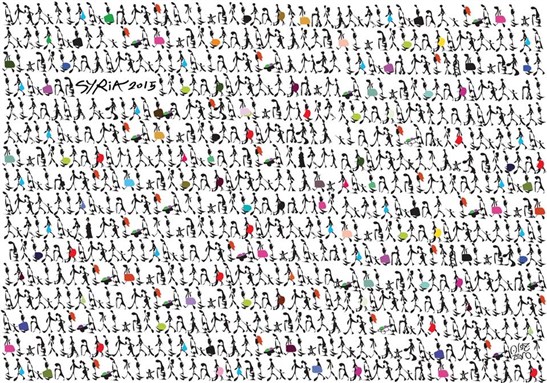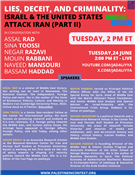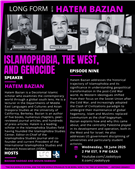Saturday, February 24, 2018, 9:00am-3:30pm, George Mason University, Merten Hall #1204
The current global policy environment surrounding migration and immigration reflects urgent humanitarian needs. At the same time, global responses are being shaped by resurgent exclusionist tendencies that also defined earlier migration policies in the twentieth century. This Teacher/ Student Outreach Workshop will be held at George Mason University on Saturday, February 24, 2018 from 9:00 am to 3:30 pm. It will feature a session on historical background in the morning, and multiple speakers on issues emerging from 21st century migration in the afternoon. The workshop will explore facets of migration in the context of the Middle East & North Africa from a regional and contemporary perspective of 21st century issues, as well as from a historical and policy perspective as it relates to migrants from the region in the United States since the 19th century.
The event is co-sponsored by the Center for Contemporary Arab Studies and the Institute for the Study of International Migration (ISIM) at Georgetown University and the Middle East and Islamic Studies Program and Center for Global Islamic Studies at GMU, as well as the Arab Studies Institute. It is made possible in part by a Title VI grant from the U. S. Department of Education, with additional funding from the Center for Contemporary Arab Studies for education outreach and public events. Co-sponsors at George Mason University include Global Programs, Global Affairs, History, Schar School, Film and Media Studies, Department of Anthropology and Sociology, Film and Video Studies, and Cultural Studies.
Register here for teachers and here for members of the public
Lunch and Refreshments will be provided.
Teach-In on Global Migrations and Refugees:
The US and the Middle East
Saturday, February 24, 2018, 9:00am-3:30pm, at George Mason University, Merten Hall #1204
MORNING SEGMENT For Educators and Interested Members of the Public
9:00 - 9:15 am Welcome & Introductions
9:15 - 10:15 “History of Migration to the United States: Issues and Flows,” Elizabeth Chacko, Elliot School of International Affairs, George Washington University
10:15 - 10:25 Q & A/discussion
10:25 - 10:35 BREAK
10:35 - 11:20 am “History of Migration in and out of the Middle East and North Africa in the 20th century, Rochelle Davis, Director, Center for Contemporary Arab Studies
11:25 - 11:35 Q & A/discussion
11:35 - 12:15 Film Screening: Flight of the Refugees, Directed by Elias Matar
12:15 - 1:00 pm LUNCH (for educators attending morning & afternoon segments)
AFTERNOON SEGMENT – Open to the Public
1:00 - 2:30 pm Panel on 21st Century Migration Issues
- “Where the Wild Things Are: Youth Using Religion and Women to Protect Christian and National Identity in Central Europe,” Elzbieta Gozdziak, Institute for the Study of International Migration, Georgetown University
- “Current Dilemmas in Protection and Humanitarian Action,” Elizabeth Ferris, Institute for the Study of International Migration, Georgetown University
- “Policies of Immigration Exclusion,” Kristin Sekerci and Azza Al-Tiraifi, Georgetown University
2:30 - 3:30 pm Panel on Experiences of Migration
- Aysenour Kara, George Mason University
- Musab al-Balchi, George Mason University
- Nana Brantuo, University of Maryland, formerly Black Alliance for Just Immigration
3:30 - 4:00 pm Wrap-up


















